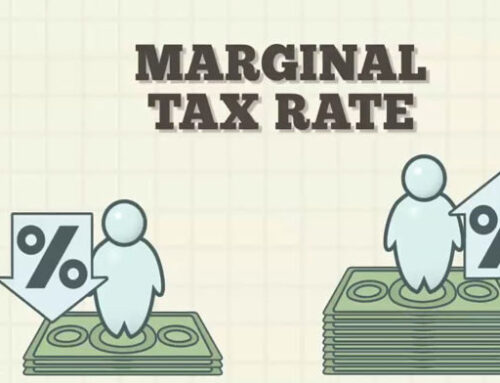Maximize Your Tax Benefits as a Post-Secondary Student
As a post-secondary student, whether you’re enrolled full-time or part-time, you have access to exclusive credits that can bolster your tax refund or lower your tax liabilities when you file your return. It’s crucial to ensure that you’re capitalizing on all the available credits and deductions as a student to secure the refund you rightfully deserve. Don’t miss out on these valuable opportunities to optimize your tax benefits and lighten your financial burden.
Key Considerations for Canadian Students When Filing Taxes
It’s important to keep the following factors in mind when completing your tax return:
Taxable Income for Canadian Students: Being a full-time student does not exempt you from paying income tax in Canada. If you earned any income from part-time or summer jobs, it is necessary to file an income tax return. Any money received, regardless of the nature of the work (occasional, part-time, or full-time), is considered employment income. This also includes tips received during your employment. Additionally, interest earned from a Registered Education Savings Plan (RESP) is also considered taxable income. However, scholarships, bursaries, and grants are generally exempt from taxation.
Remember to include all applicable sources of income when filing your taxes to ensure compliance with tax regulations and to maximize potential deductions and credits for Post-Secondary Student.

Don’t Forget to Utilize the Federal Tuition Tax Credit
The federal tuition tax credit stands as one of the most valuable credits available to post-secondary students. Even if you didn’t earn any income to report on your tax return, you can still benefit from this credit by claiming eligible tuition fees for courses at the post-secondary level. Additionally, you can also claim fees paid to certified educational institutions for courses aimed at skill development or enhancement in a specific occupation, as well as fees for occupational, trade, or professional exams.
Ensure you take advantage of the federal tuition tax credit when filing your taxes to maximize your potential deductions and optimize your financial benefits as a Post-Secondary Student.
Maximize Your Tax Benefits as a Student: Student Loan Interest and Unused Credits
- Claiming Student Loan Interest: When you diligently repay your student loans, remember to claim the interest paid as a non-refundable tax credit. This credit serves to alleviate any taxes owed and helps reduce your overall tax burden. By utilizing this opportunity, you can optimize your tax savings and ease the financial impact of student loan repayment.
- Transferring Unused Credits: In cases where you have unused tuition tax credits in the current tax year, you have options to make the most of them. Firstly, you can carry forward these credits to future years and claim them when you have a tax liability. It’s important to note that you must claim the carry forward amounts in the first year you are required to pay income tax.
Additionally, you have the option to transfer up to $5,000 of unused tuition credits to qualifying relatives, including parents, grandparents, spouses, and common-law partners. This transfer can provide valuable tax benefits to your loved ones while helping you optimize your tax situation.
Remember to explore these options when filing your taxes to ensure you maximize your available credits and deductions, reducing your tax burden and increasing your potential refunds for Post-Secondary Student.
Claiming Student Moving Expenses: Relocation Benefits for Summer Jobs and Post-Secondary Education
If you relocated a minimum of 40 kilometers away from your home to secure a summer job, you may be eligible to claim your moving expenses. These expenses encompass transportation costs, storage fees, travel expenses, temporary living arrangements, and more. Additionally, you can also claim moving expenses when taking courses as a full-time student in a post-secondary program, but only if you have taxable scholarship income (which is typically not the case).
Be sure to consider these opportunities when filing your taxes, as they can provide valuable benefits and deductions related to your student-related moves. By claiming eligible moving expenses, you can optimize your tax situation and potentially reduce your tax liabilities or increase your refund for tax post-secondary student.

Tax Filing for International Students in Canada: Navigating Residency and Claiming Credits
It’s important to understand that the Canadian tax system is based on residency rather than citizenship. If you earned income from Canadian sources, such as employment with a Canadian employer, and/or if you are considered a resident, you are required to file a tax return.
International students who wish to claim eligible tax credits or deductions, such as GST/HST credits, tuition-related tax credits, provincial credits, or tuition rebates, must also file a tax return.
We understand that tackling your taxes can be daunting, but the good news is that H&R Block Tax Experts are well-versed in the intricacies of student tax filing. They can help ensure you claim all the credits you’re entitled to, making the process smoother and maximizing your tax benefits. Don’t hesitate to seek assistance from knowledgeable professionals to navigate the complexities of your tax obligations as an international student in Canada.
Also Read: Are Gifts To Customers And Business Associates Deductible Expenses?
Going to college or university is an exciting time in a young person’s life, for Post-Secondary Student filled with new experiences and opportunities. However, it’s also a time when students may start to navigate the world of finances, including understanding the tax implications that come with being a post-secondary student.
1. Filing Status
One of the first things students need to determine is their filing status. This depends on their age, living arrangements, and income. Here are the common filing statuses for students:
- Dependent Student: If a student is under the age of 24 and primarily relies on their parents or guardians for financial support, they are typically considered a dependent student for tax purposes.
- Independent Student: Students who are financially self-sufficient or married are often considered independent for tax purposes. Being independent may have advantages when it comes to claiming certain tax credits and deductions.
2. Tuition Credits
One of the most significant tax benefits for post-secondary students in many countries is the tuition credit. Students can claim a portion of their tuition fees as a non-refundable tax credit, which can reduce the amount of tax they owe. It’s essential to keep all tuition receipts and forms (e.g., T2202A in Canada) for tax purposes.
3. Education Credits
Many countries offer education-related tax credits that can benefit students and their families. These credits can include textbook and education amount credits, which provide additional deductions for educational expenses beyond tuition fees.
4. Scholarships and Bursaries
Scholarships and bursaries are generally tax-free for students when they are used to pay for tuition, textbooks, and other education-related expenses. However, if the scholarship or bursary is designated for living expenses or other non-educational purposes, for Post-Secondary Student it may be taxable.

5. Part-Time Employment
Many students work part-time jobs during their studies to help cover living expenses. While the income from part-time employment is taxable, students can take advantage of certain deductions, such as employment expenses and the basic personal amount, to reduce their tax liability.
6. Tax Credits for Students with Disabilities
Students with disabilities may be eligible for additional tax credits, such as the Disability Tax Credit (DTC) in Canada for Post-Secondary Student. To claim these credits, students need to provide medical documentation confirming their disability.
7. RRSP Contributions
Although it may not be a priority for students, contributing to a Registered Retirement Savings Plan (RRSP) or similar retirement account can have long-term tax benefits. Contributions to RRSPs are tax-deductible and can reduce taxable income for Post-Secondary Student.
8. Keep Records
To ensure a smooth tax-filing process, students should keep organized records of all their financial transactions, including tuition receipts, employment income, scholarship details, and any other financial transactions relevant to their tax situation.
Conclusion
Navigating tax implications as a post-secondary student can be complex, but understanding the available benefits and credits can lead to significant financial savings. It’s essential for students to stay informed about the tax rules and regulations in their country and, if needed, seek guidance from tax professionals or tax preparation software to optimize their financial situation. By taking advantage of available tax credits and deductions, students can better manage their finances during their academic journey and set themselves up for financial success in the future.
Recent Posts
FAQ
Why should I consider these opportunities when filing my taxes?
These opportunities can provide valuable benefits and deductions specifically related to your student-related moves. By claiming eligible moving expenses, you have the potential to optimize your tax situation, which may result in a reduction of your tax liabilities or an increase in your tax refund.



